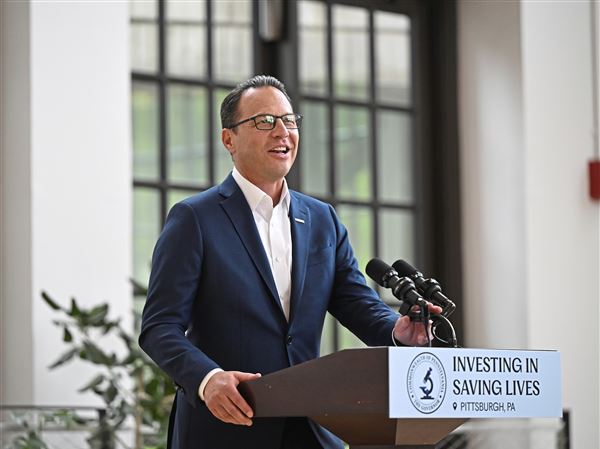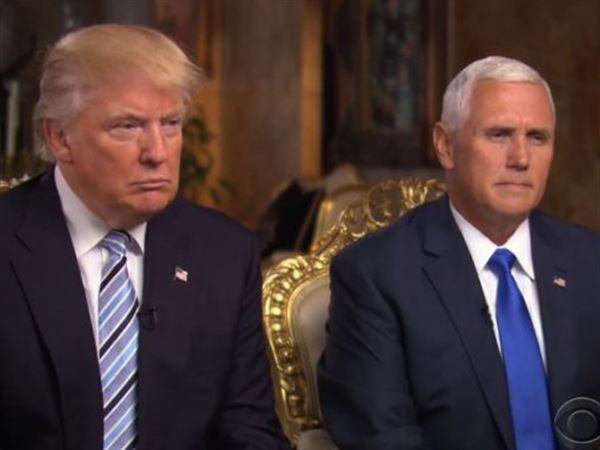Tomorrow, millions of Americans will enjoy a day off work to celebrate the values enshrined more than 100 years ago when Labor Day was declared a national holiday. Here in Pittsburgh, the celebration will highlight the renaming of the 10th Street Bridge in honor of Philip Murray, the founder of our union, the United Steelworkers.
Unfortunately, tens of thousands of working Americans will not have the day off. They have been called away from their jobs in order to serve the U.S. military in Iraq. No one can question their courage, their purpose or their allegiance to duty. The loss of American lives speaks for itself: more than 3,700 and counting.
One question that grows in significance, though, as the numbers mount -- especially in the wake of Hurricane Katrina and the collapse of the I-35 bridge in Minneapolis -- is whether the Iraq occupation is sapping the nation of sorely needed resources for rebuilding the country's failing infrastructure and for financing other priorities at home.
In a recent report to Congress, the nonpartisan Congressional Budget Office found that the war in Iraq could cost U.S. taxpayers more than $1 trillion, which includes the long-term costs of caring for soldiers wounded in action, military and economic aid for the Iraqi government and ongoing costs associated with the U.S. troops stationed in Iraq. The cost has already risen to $450 billion, with the Bush administration now requesting another $116 billion.
"We are now spending on these activities more than 10 percent of all the government's annually appropriated funds," reported Robert A. Sunshine, the CBO's assistant director for budget analysis.
Meanwhile, the nation's needs in domestic reconstruction go begging. Twenty-seven percent of the nation's 590,750 bridges are rated structurally deficient or functionally obsolete. The number of unsafe dams rose to more than 3,500 between 1998 and 2005 -- an increase of 33 percent.
Addressing these urgent infrastructure needs would create a new surge of prosperity for America's beleaguered middle class, and redirecting the money now pouring into Iraq would begin to liberate the nation from the grip of religious and sectarian violence in the Middle East.
Another domestic priority is improving health care.
The misfortune of the men and women returning home wounded from the Middle East cannot be assuaged. Their one saving grace, among many woes, is that they have the right, through the Veterans Health Administration, to the highest quality health care available. (The much-maligned Walter Reed Hospital is not part of the VHA system.)
Over the last decade or two, the federally subsidized VHA has become a worldwide leader in the invention and adoption of health-information technology, and the independent National Committee for Quality Assurance, considered the gold standard in ranking health care, has given its highest ranking to the VHA. In every one of 17 metrics measured, it gave the VHA its top ranking, ahead of such esteemed facilities as Johns Hopkins, the Mayo Clinic and Massachusetts General Hospital.
Returning veterans surely deserve the quality care that the VHA provides through a federally supported health care system. But does a working mother whose child is gravely ill deserve less, simply because health care in the privately financed system may cost more than she can afford?
And isn't it more than a little ironic that the same politicians who urge us to unite in support of nation building abroad reject that solidarity when it comes to advancing universal health care? Rather than address this need, for instance, the Bush administration is threatening to veto increased funding for the State Children's Health Insurance Program, a virtual health-care life preserver for the nation's neediest children.
The 47 million uninsured Americans are not the only victims of the failing system of privately financed health care. With premiums going up and employers driving benefits down, middle-income families aren't faring much better, as those of us engaged in collective bargaining know all too well.
In short, working Americans deserve more than a day off once a year. They deserve to have the values restored that led to the creation of Labor Day. And that means refocusing on the job of nation building right here at home.
First Published: September 2, 2007, 4:00 a.m.















